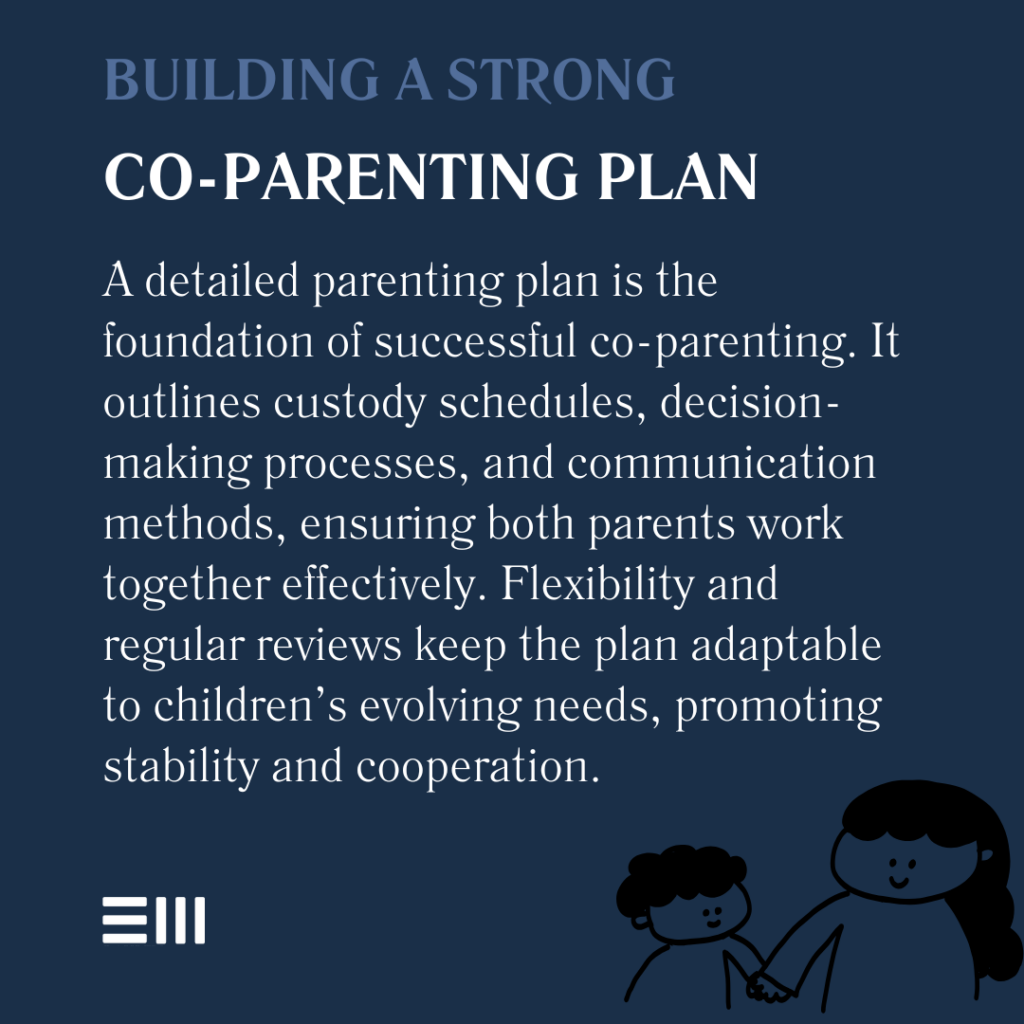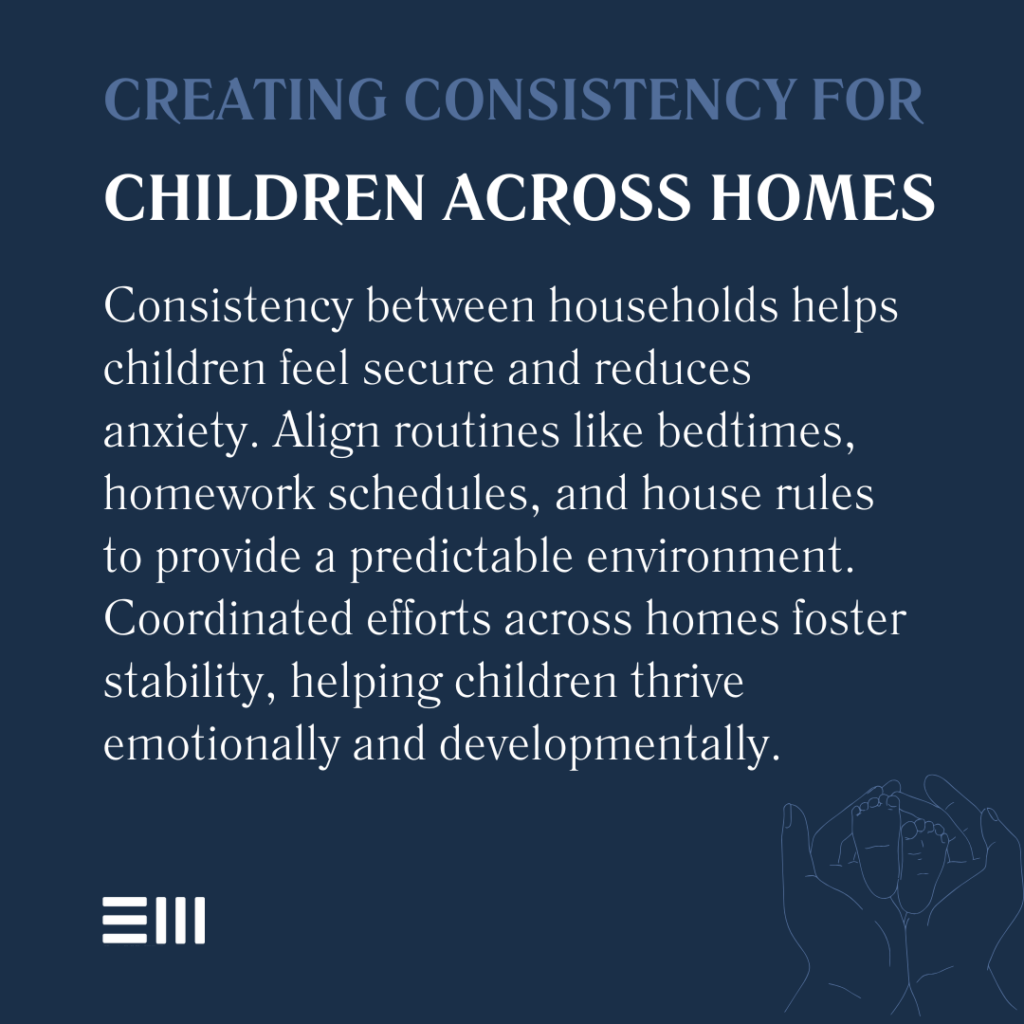
In homes across Alabama, from Birmingham’s busy suburbs to Mobile’s coastal communities, parents are rewriting the story of what family means after separation.
Every morning, a child wakes up knowing they have two homes where they are loved, two parents who put their needs first, and a future built on cooperation rather than conflict.
These families prove that successful co-parenting isn’t just possible—it’s an achievable reality that transforms challenges into opportunities for growth.
As parents navigate this journey together while living apart, they create new traditions, establish strong bonds, and demonstrate the enduring power of family love that transcends traditional boundaries.
Understanding Co-Parenting in Alabama
Alabama family courts consistently emphasize the child’s best interests in custody arrangements.
Parents who actively collaborate in raising their children, despite living separately, create an environment of stability and emotional security that directly impacts their children’s development.
Before diving into specific strategies, understanding Alabama’s legal framework for co-parenting helps establish a strong foundation:
- Alabama courts encourage joint custody arrangements when possible.
- Both parents retain legal rights and responsibilities unless explicitly modified by court order.
- Parents must follow the Alabama Parent-Child Relationship Protection Act when considering relocation.
- State laws require parents to complete a parenting class before finalizing divorce.
These legal considerations shape how co-parents navigate their responsibilities while maintaining their children’s best interests.
Building an Effective Co-Parenting Plan
Creating a comprehensive parenting plan sets the stage for successful co-parenting. Alabama courts strongly encourage parents to develop detailed, well-structured plans that address both immediate needs and potential future scenarios.
Working with experienced family law professionals can help ensure your plan complies with Alabama state guidelines while meeting your family’s unique needs. Start by addressing these fundamental areas:
- Detailed custody and visitation schedules, including holidays and special occasions;
- Communication protocols and preferred methods of contact;
- Decision-making processes for education, healthcare, and extracurricular activities;
- Financial responsibilities and expense sharing;
- Methods for resolving disagreements; and
- Emergency procedures and contingency plans.
Remember that flexibility and clear communication form the backbone of any successful co-parenting arrangement. Regularly review and adjust your plan as your children’s needs evolve.

Communication Strategies for Co-Parents
Effective communication serves as the cornerstone of successful co-parenting.
Consider implementing these proven approaches:
- Use dedicated co-parenting apps for scheduling and messaging;
- Maintain a business-like tone in all interactions;
- Focus conversations solely on children’s needs and activities;
- Document important decisions and agreements in writing;
- Respond to communications within agreed-upon timeframes; and
- Keep emotions in check during discussions.
Professional communication helps maintain boundaries while ensuring both parents stay informed about their children’s lives.
Consider working with a family therapist or counselor who specializes in co-parenting dynamics to develop and refine these communication skills.
Creating Consistency Across Households
Children thrive on routine and predictability. Establish consistency by implementing these practices:
- Align basic house rules and expectations;
- Coordinate homework and study schedules;
- Maintain similar bedtime routines;
- Share information about dietary preferences and restrictions;
- Keep both households informed about medical needs; and
- Coordinate discipline approaches when possible.
This alignment helps children feel secure and reduces confusion as they transition between homes. Child development experts emphasize that consistency between households significantly reduces anxiety and behavioral issues in children of separated parents.
Consider scheduling regular co-parenting meetings to review and adjust household rules and routines as your children grow and their needs change.

Managing Special Occasions and Holidays
Holiday planning requires additional attention and cooperation. Consider these approaches:
- Create a detailed holiday schedule well in advance;
- Alternate major holidays yearly;
- Plan separate but equal celebrations when possible;
- Include extended family considerations;
- Remain flexible for special events and opportunities; and
- Document agreements about gift-giving and celebrations.
Thoughtful holiday planning helps children enjoy special occasions without feeling caught between parents.
Common Challenges and Solutions
Every co-parenting relationship faces obstacles. Here are effective strategies for common challenges:
- Address schedule changes promptly and professionally;
- Maintain boundaries with new partners and relationships;
- Handle disagreements away from children;
- Seek mediation for persistent conflicts;
- Document recurring issues for future reference; and
- Focus on solutions rather than blame.
Remember that overcoming challenges together strengthens your co-parenting relationship and benefits your children.
Frequently Asked Questions About Successful Co-Parenting in Alabama
Understanding co-parenting intricacies helps parents navigate this journey more effectively.
Here are answers to common questions from Alabama parents.
How Do We Handle Schedule Changes in Alabama?
Maintain a flexible approach while following your parenting agreement. Document changes in writing and give reasonable notice when possible.
Alabama courts generally expect parents to accommodate reasonable schedule changes that benefit the child, such as special school events or extracurricular activities.
However, patterns of last-minute changes or frequent disruptions may warrant court intervention. For significant modifications, consult your attorney about formal amendments to ensure your rights and responsibilities remain protected.
What Are the Legal Requirements for Moving Out of State?
Alabama law requires parents to provide written notice 45 days before any planned move of more than 60 miles. The other parent has 30 days to object, potentially triggering a court review.
Can We Modify Our Parenting Plan?
Yes, parents can modify their plans through mutual agreement or court intervention. Document any changes officially to ensure enforceability.
How Do We Handle School Choice Decisions?
Joint legal custody requires both parents to participate in educational decisions. Maintain open communication about school options and document agreements in writing.
What if My Co-Parent Refuses to Communicate?
Document all attempts at communication and consider using a parent coordinator or mediator. If issues persist, consult your attorney about legal remedies.
Take the Next Step Toward Positive Co-Parenting
Your commitment to effective co-parenting makes a lasting difference in your children’s lives.
Research consistently shows that children whose parents maintain respectful, cooperative co-parenting relationships demonstrate better academic performance, stronger emotional regulation, and healthier relationship patterns in their own lives.
Our experienced family law team understands Alabama parents’ unique challenges and is ready to help you create or modify your co-parenting arrangement.
We offer specialized expertise in:
- Developing comprehensive parenting plans;
- Navigating complex custody arrangements;
- Resolving co-parenting conflicts;
- Modifying existing agreements; and
- Ensuring compliance with Alabama family law.
Contact us today to schedule a consultation and learn how we can support your co-parenting journey. Together, we can create a stable, nurturing environment that promotes your children’s well-being and future success.
Can't find what you're looking for? Search our site below.










